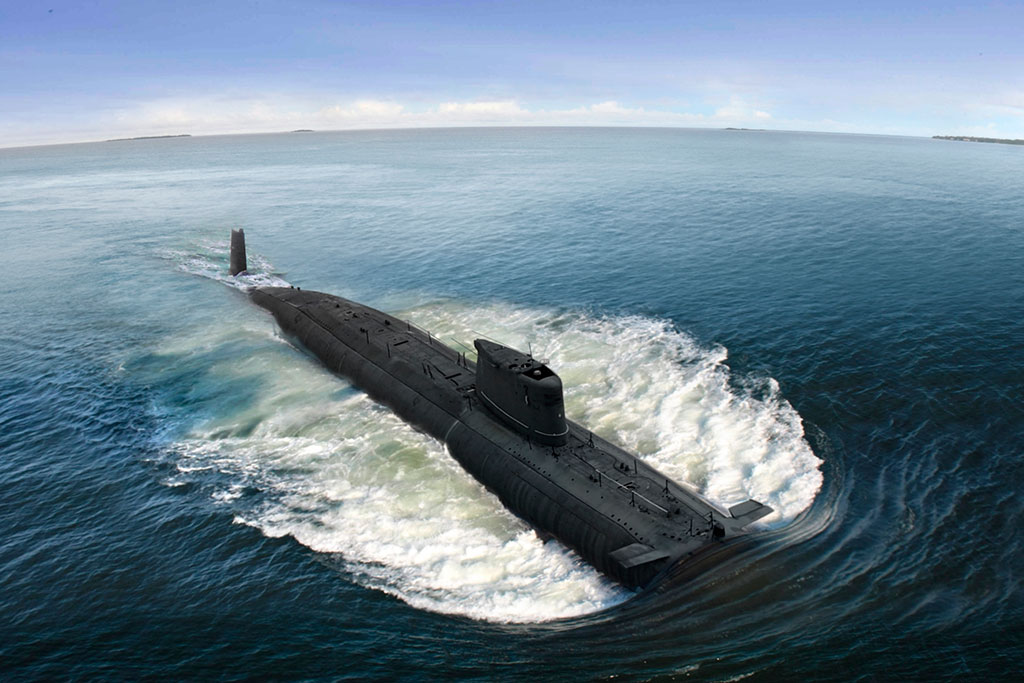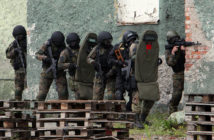South EU Summit
Ruairi Kavanagh
Spanish and Portuguese defence officials have significantly increased cooperation with Morocco as it seeks to establish counter-terrorism credentials and maintain its reputation as a highly popular tourist destination.
Morocco and Spain have a complicated relationship, from the origins of the political enigma that is the Western Sahara to the long held, but often disputed, Spanish enclaves of Ceuta and Melilla. But with the North African kingdom suffering a public relations nosedive following terror attacks in late 2018, help has come through a significant increase in security cooperation with Spain and Portugal, along with other European nations.
The African Lion military exercises in Morocco this past March saw army personnel from the US, Canada, Tunisia, Senegal and Spain join their Moroccan counterparts in land and air exercises designed to bolster cooperation, support, and tactical understanding between Europe, Africa and the Americas. The fact that the African Lion took place in Morocco is significant, as the kingdom looks to boost the profile of its security capabilities after two Danish female tourists were brutally murdered in the Atlas Mountains region by a terrorist cell last December.
In April, the Spanish Secretary of State for Defence, Angel Olivares Ramirez, visited Rabat as head of a delegation, to meet with his Moroccan counterpart and discuss increased security cooperation between the two nations. Agenda priorities were comprised of ongoing efforts to curb illegal migration and human trafficking, and included discussions about special forces and maritime capabilities, as well as increasing cyber security collaboration.
Spain and France are the two main European suppliers of defence technology to Morocco, who also purchases large amounts of US hardware. The kingdom is expected to increase defence spending to over 3.5 billion euros by 2022.
Intelligence sharing between Spain and Morocco has increased significantly over the past decades, particularly following deadly terror attacks in Madrid in 2004, and in Barcelona and Cambrils in 2017. Shortly after the visit of the Spanish delegation, a joint counter-terrorist operation led to the capture of a jihadist in Seville, who was believed to have been coordinating an attack in the city to coincide with its Easter festivities.
This past July, the Moroccan Navy underwent training exercises with EUROMARFOR, a European Maritime force comprising of vessels from France, Italy, Portugal and Spain. Moored at Casablanca Naval Base, the ships participated in several training drills in the scope of maritime interdiction operations (counter-narcotics), search and rescue operations, diving, force protection against asymmetric and terrorist threats, medical assistance, and emergency response capabilities.
Allied to its increasing cooperation with Spain and other EU nations, Portugal has also reached out to Morocco to help the country expand its naval capabilities, particularly in terms of developing a submarine fleet. In July, the Moroccan Defence Minister, Abdellatif Loudiyi, visited his Portuguese counterpart João Gomes Cravinho in Lisbon to discuss their common Atlantic border, the ongoing battle to stem illegal migration, and security and terrorism concerns. As part of the bilateral relationship, Moroccan officers will deploy on Portuguese submarines for training exercises.
“Morocco is in the process of procuring submarines and therefore needs to have knowledge about how the navies and submarines of neighbouring countries and friends operate”, said Cravinho.
With regard to Spain, the often fraught relationship between the two countries has improved considerably in the 21st century, a fact noted by Spanish Prime Minister Pedro Sanchez. Writing in El Pais newspaper on the 20th coronation anniversary of Moroccan King Mohammed VI, the Prime Minister noted that “Spain sees Morocco as a friendly country and a strategic partner of the highest order, with whom we share progress, prosperity and security”, adding that “we are working to consolidate stability in the Western Mediterranean.”
Relations between the two nations have been tense in the past, primarily due to Spain’s possession of the enclaves of Ceuta and Melilla. However, with Ceuta the site of a 2018 incursion by desperate illegal migrants which led to a much criticised response by Spanish authorities, Madrid has decided to make moves to scale back security around the two autonomous cities.
According to reports, the Spanish Ministry of the Interior will spend 32.7 million euros on the improvement of the infrastructure and security systems at the border crossings of Ceuta and Melilla. The plans include changing surveillance cameras, implementing a facial recognition system, and removing barbed wire fortifications from around the two towns, in a bid to modernise border infrastructure. Notably, there has been a significant reduction in the amount of illegal migration through the two enclaves, which has dropped from 1,028 in 2018, to only 226 in 2019 to date.









